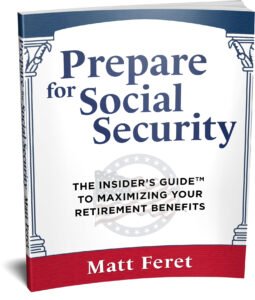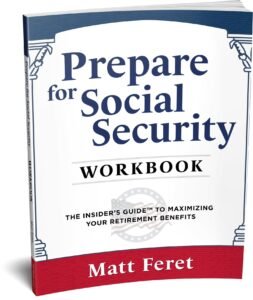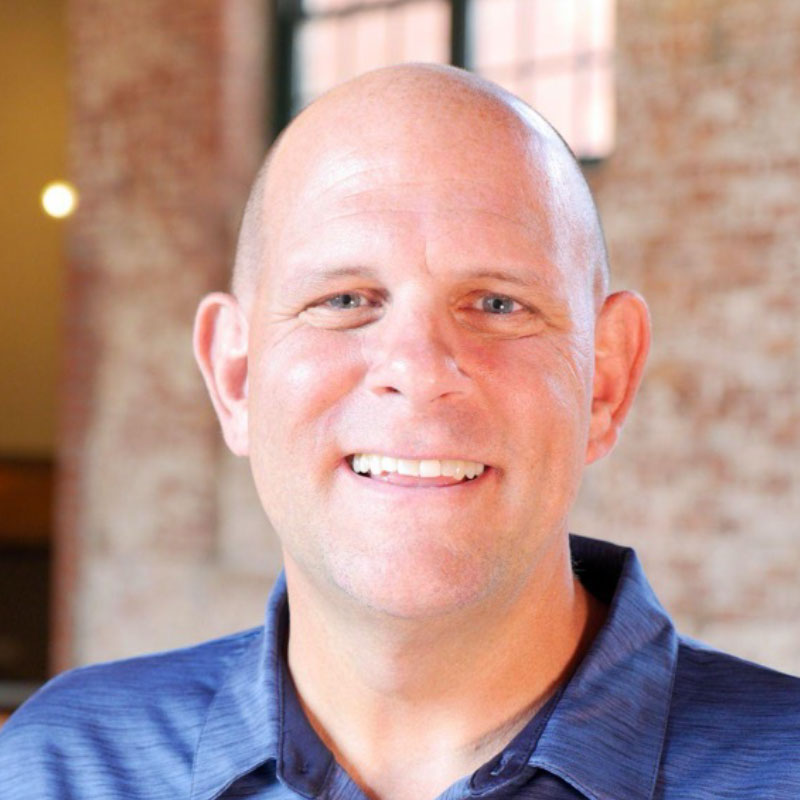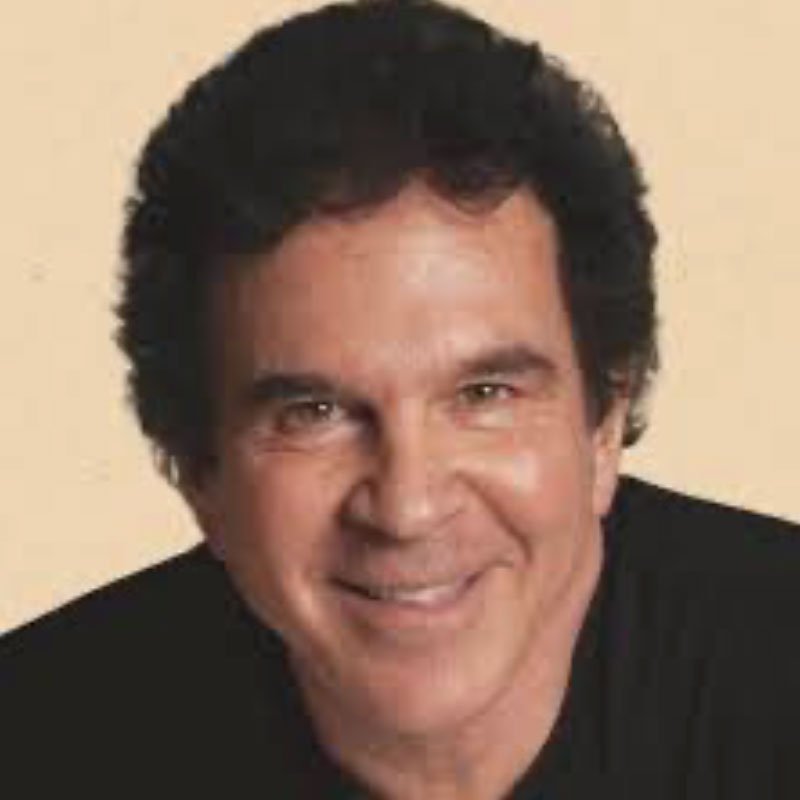#033
Share This:

“The purpose of all this is not the writing. The purpose of this is not the journaling. The purpose is, “How does this actually help other people? How does this help your business, which is supposed to help other people?" So, I wouldn't worry about the form of it so much. I would worry about, "What is this producing in you as a person that is then transferred to other people as you become a better individual, as you become more whole and more in control of your emotions and more self-aware as you make plans for your business or for retirement.”
- Kent Saunders
Kent Sanders is the author and co-author of numerous books, including 18 Words to Live By: A Father’s Wisdom on What Matters Most and co-author of The Faith of Elvis: A Story Only a Brother Can Tell with Billy Stanley, Elvis Presley’s stepbrother. Kent also loves to serve other writers by hosting the Daily Writer podcast and leading the Daily Writer Club, a membership community that helps writers build a business with their skills.
On this episode of The Matt Feret Show, you’ll get an insider’s guide to Kent’s lifelong approach to journaling, how it’s helped him with mental clarity, self-realization and how he recommends we do it. Plus, we also talk about how valuable leaving a written diary, journal, audio files or video for future generations is such an important opportunity.
Enjoy!
Listen to the episode on Apple Podcasts, Spotify, Deezer, Podcast Addict, Stitcher, Google Podcasts, Amazon Music, Alexa Flash Briefing, iHeart, Acast or on your favorite podcast platform. You can watch the interview on YouTube here.
Brought to you by Prepare for Medicare – The Insider’s Guide book series. Sign up for the Prepare for Medicare Newsletter, an exclusive subscription-only newsletter that delivers the inside scoop to help you stay up-to-date with your Medicare insurance coverage, highlight Medicare news you can use, and reminders for important dates throughout the year. When you sign up, you’ll immediately gain access to seven FREE Medicare checklists.
Quotes:
“I would start with a simple list of things that you want to just write about, and then maybe once a week or a couple times a week, when you have five or 10 minutes, just put down that story. You can even make it a part of your daily routine if you wanted to. Maybe, "Hey, when I have my coffee in the morning, I'm going to take 10 minutes, I'm going to write down this story." The cool thing is that when you do this a few times, you're going to get into the groove of it, and I think most people are going to really, really enjoy this because it's going to release something creatively in you that you didn't realize that was there before, and that's what the act of journaling and the act of writing does.”
- Kent Saunders
“Write in the way that suits you, and do it in a timeframe or a time of day that works for you. What I would recommend is just getting any old notebook and trying it for five days in a row or 60 seconds a day. Just one single minute, you're writing just a few sentences about, "Hey, here's what happened yesterday. Here's what's going to happen today. Here's what I'm thinking and feeling. Why do I think and feel this way?"
There's no rules. It's totally just a stream of consciousness thought. I think the interesting thing is that when you do this for a few times, you start to see the value of it, and the very act of just writing something down, that creative act has a way of releasing something in your brain that won't get released otherwise.”
- Kent Saunders
#033
Selected Link from the Episode:
Links, Websites and Mentions:
Kent's Facebook: https://www.facebook.com/kent.sanders
Kent's Instagram: https://instagram.com/kentsanders?igshid=MmJiY2I4NDBkZg==
Email: Kent@dailywriterlife.com
Daily Writer Website: https://dailywriterlife.com/
Daily Writer Podcast: https://dailywriterlife.com/podcast/
Books:
Full Show Transcript:
00:00:00 / 00:35:04
Hello, everyone. This is Matt Feret, author of Prepare for Medicare and Prepare for Social Security: Insider's Guide books and training series. Welcome to another episode of The Matt Feret Show, where I interview insiders and experts to help light a path to a successful retirement. Small favor, if you enjoy this podcast, I'd love your support. How? Easy.
Please follow, like, and subscribe wherever you are. Leaving honest reviews and five-star ratings really helps the show thrive and helps others discover it. Thanks very much. I'd also like to invite you to sign up for The Matt Feret Newsletter. I send two a month, and you can sign up on any of my three websites, prepareformedicare.com, prepareforsocialsecurity.com, and themattferetshow.com.
(00:53):
Kent Sanders is an author and co-author of a ton of books. He also hosts the Daily Writer Life Podcast and is the founder of the Daily Writer's Club. On this episode of The Matt Feret Show, you'll get an insider's guide to Kent's lifelong approach to journaling, how it's helped him with mental clarity, self-realization, and how he recommends we do it. Plus, we also talk about how valuable leaving a written diary, journal, audio files, or even a video for future generations is such an important opportunity. Enjoy. Kent, welcome to the show.
Kent Sanders (01:27):
Thanks, Matt. It's great to be here. I appreciate you having me.
Matt Feret (01:30):
So, tell everybody what you do, how long you've been doing it, and how you help people.
Kent Sanders (01:35):
So I am a book nerd. That's not my official title. That's not on my business card, but basically, I think about books and writing stuff all day. I believe that books and writing are incredibly powerful, and I believe you're never too young and you're never too old to get into writing. One of the simplest ways, I think, of getting into that is journaling, writing blog posts, social media posts, really, simple things, but basically, what I do is I help writers create their books.
(02:05):
I do some publishing services for people, but the main thing that I do is I run a membership community called The Daily Writer Club, which is a group for people who want to build a business around their writing and books, and I also run a podcast called The Daily Writer, so I love podcasting. Obviously, you do too because we're here together on this podcast, but basically, I help people with books in different ways, and I love to help authors get their books out into the world, so I'm kind of like a champion of writing, I guess.
Matt Feret (02:37):
That's awesome. So, when you say champion of writing, we're talking authors, which to many can sound intimidating. Certainly, before I wrote books, it was ...
Kent Sanders (02:47):
Sure.
Matt Feret (02:47):
In fact, there was an article I wrote out there on LinkedIn a year and a half ago. I was like, "Wait, I'm an author?" It didn't feel like that was what I started out to be. Just, I kind of wrote a book, which I guess made me an author, but I didn't feel like one. I just kind of felt like I was writing things.
Kent Sanders (03:03):
And now you've got a whole series of them out there, so you've cranked a lot of stuff out.
Matt Feret (03:07):
Yeah, I have, and it's been really rewarding, but it has to start ... I was intimidated with the idea of writing and authoring, and so one of the reasons I definitely wanted you on the show is because you're big into journaling, which seems, I guess less scary than an author, right? An author, you have to write an entire book, but journaling ...
Kent Sanders (03:31):
Totally.
Matt Feret (03:33):
If you want to call it journaling, you want to call it having a diary or something, you're really into that, and you talk about that on your podcast, and you and I have spoken about that, of how short of being a author, it's the importance of writing and the benefits of journaling. I know you do it in your daily life but talk about that for a little bit. Why is journaling so important to you, and what benefits have you found of doing that?
Kent Sanders (04:02):
So I have journaled since I was probably a teenager. I remember when I went to college, way back in the dark ages, back when we were in the college years, they did have electricity back then, so it was post-electricity development, but I remember journaling for the very first time, and I thought, "Wow, this ..." I had heard about it in some class or something, and I did, and I thought, "This is kind of a cool thing, where you're writing down your thoughts and feelings about things. They're not for anybody else. They're just to help you process what you're thinking and what you're going through, and they're kind of like a record of your life, in some ways."
(04:39):
I don't journal every single day. I never have journaled every single day. There are some people who do. They do it religiously, but it's something that I do multiple times a week, and I do it in different formats. Sometimes I do it on my computer, sometimes I do it in a paper journal.
(04:52):
There's really no ... I don't have like, this really hard, defined system, and that works for me, but for me, the main value is to help me process what I'm thinking and feeling. Oftentimes, to be honest with you, I sit down, and I journal when I'm frustrated or irritated about something, when I'm trying to work through something like, "Why am I so upset about this? Why am I frustrated by the situation? What's not going right with it?" and I find that nine times out of 10, the act of just sitting down and writing about my feelings or thinking through why I'm upset about something or why something isn't working, that helps me get clarity and insights that I wouldn't get otherwise.
(05:35):
Like if I just sit around and I kind of stew about it, that's not really a healthy way to process that, but for me, and I think for millions and millions of people around the world and throughout history, sitting down and just processing that and sort of doing a brain dump or an emotional dump is a really, really good way to kind of get it all out and to vent, and to just kind of sift through the gunk of your emotions about something, and it just has a way of releasing the valve and giving you some clarity. There's a lot of other benefits to journaling as well, but for me, that's kind of the main thing, is it's just kind of a brain dump, where I can think through why oftentimes I'm going through something and how I can fix it, and gosh, I would never show anybody that stuff. People would probably think I'm a horrible human sometimes, but I think that's the beauty of journaling, is you can just dump it all out, it's a wonderful listening partner, it's going to listen to whatever you want to put out there, and it's not going to judge you, but you've got to have some place to do that, and a journal, I think is a really wonderful place.
Matt Feret (06:35):
Do you go back and reference? Do you go back and say, "Wait a minute, I've written about this other times. What did I say about this year or two years or a month ago?"
Kent Sanders (06:43):
Oh, yeah. In fact, I did that a few months ago. So, for many, many years, I've actually ... One of the main journaling tools that I've used is an app called Day One. There's a lot of journaling apps out there, but I started using it, I think in 2011 or 2012. Whenever I want to write a lot of stuff fast, that's what I use, because I can type way faster than I can handwrite, plus, my handwriting is atrocious, and I should have been a doctor 'cause my handwriting is so terrible.
Matt Feret (07:10):
Same.
Kent Sanders (07:11):
But a few months ago, I was ... I forgot what I was writing about. I took five or 10 minutes and scratched out some notes really fast, and then I thought, "I'm going to go back and look at what I wrote eight or 10 years ago," and it was really interesting because I found that I was having some of the same struggles still, some of the same frustrations, and some of the same thought patterns, and I was like, "Oh, wow. In a lot of areas, I've really grown and developed, and in these other areas, I feel like I'm the same person." I think that's really helpful because it helps you to see where you're growing and maybe where you're not growing in your life.
(07:50):
Plus, for me, it's just helpful to have a record of some things that I'm going through and what I'm thinking and feeling, so for me, yeah, that is an interesting experience when you go back and read journals, especially for me, since I've been doing it a long time. When you go back and read journals from 20 years ago, it's really interesting because you forget about things. When you journal on a regular basis, you're writing down details about events, and people, and emotions, and experiences, but when you go back and read those much, much later, you've forgotten 99% of that stuff, and so it has a way of bringing back all those memories and those experiences, which can be really, really valuable, I think.
Matt Feret (08:28):
So you got into journaling for kind of your own inner dialogue, it sounds like.
Kent Sanders (08:31):
Exactly. Exactly.
Matt Feret (08:34):
And have you noticed doing that progress? I mean, I know you said sometimes you're the same person and sometimes, wow, you really made some changes. Do you actually go back and revisit and say like, "I need to work on these things," or do you end up just going, "This is a mirror of my brain. It's a reflection in time"? Do you proactively use it and reflect and try to, I don't know, fill the gaps in there, or is it just kind of a, "Huh, that's interesting"?
Kent Sanders (09:02):
Yeah, and that's a really good question. The way that I think about it is it's kind of like stepping outside of yourself and looking at a different person, so I think there's a lot of benefit to being a self-aware kind of person, where you can be experiencing emotions in the moment. For example, five minutes ago, right before we got on this call, there's ... So I'm in an office building. Right across the street, there's this guy's house.
(09:30):
There's actually a number of houses, and about every three or four weeks, something happens with this guy's minivan, and the alarm goes off, and he won't shut it off for like 10 minutes. So this happened literally, again, right before we got on the call, and I was thinking, "Oh, man, I hope he fixes this right before this call happens because it's kind of loud," and so as this is going off, with every passing minute, I find myself getting more and more agitated because it's loud and because it's this incessant noise. At the same time, I'm kind of stepping outside myself going, "Okay, I can feel myself getting irritated by this, but what can I do to not be irritated because I can't control that?" So, there's a lot of value in sort of stepping outside yourself and observing your emotions that you're feeling in the moment and going, "Okay, that's really interesting. Do I have to feel those emotions? Is anybody making me feel irritated?"
(10:23):
Not necessarily. So I think the same thing applies to journaling, where you can be feeling something in the moment, but once some time has passed, you can look back at that experience and go, "Wow, I was really being a petty jerk there," or, "I was really being a selfish baby," or, "Yeah, maybe my anger or my frustration or my sadness was really justified in that situation." So I think it's an interesting exercise to help you look at yourself with some objectivity, which I think is really, really helpful because we're emotional creatures, and if you just live by your emotions all the time, that's not really very healthy, but if you can step away from that and sort of observe, "Okay, I'm feeling angry right now, or I was feeling angry back then when I wrote that. Why was I feeling so mad, and was I justified in feeling that, and how can I do better the next time this happens?" I just think it's a wonderful tool for personal growth.
Matt Feret (11:15):
How should I, or anybody listening or watching think about this concept of journaling and work, or just one more thing to do? I think it in my -
Kent Sanders (11:28):
Feels like another thing.
Matt Feret (11:29):
Yeah. Well, in my personal experience, have I written in a diary before, or just a notebook and journaling? Yes, I have, and then I don't know why I kind of set up like, "Well, I should do this every day. Well, I should do this once every three days." When you have all of these things that are hitting your brain of what you should do every day, you should meditate every day, you should ...
Kent Sanders (11:52):
Right.
Matt Feret (11:53):
I mean, all of a sudden, the list just gets bigger and bigger, and it's feeling like work.
Kent Sanders (11:56):
It does.
Matt Feret (11:57):
What's your advice since you've been doing it for so long, around holding yourself accountable to a schedule or not, a format or not, typing it, writing it or not? I don't want to feel like it's work, that I have to, so what's your experience and your advice around that?
Kent Sanders (12:16):
That's a really good question. I think the number one thing to remember about journaling is that journaling is for you. It's not for anybody else. So if you're writing a journal with the intent of, "Oh, my grandkids are going to read this someday," or, "My great-great-nephew in 57 years is going to read this someday," then you're going to tend to censor yourself, and I think it's not going to be that valuable because you're going to look at this as like a historical document, which is totally fine, by the way, but that's not really journaling, in my opinion. That's memoir or autobiography or something like that.
(12:50):
Journaling, in the way that I approach it, is strictly for you. It's not meant to be published. It's just meant to help you process, think, and reflect so you can have more control in your life, and so you can be mentally healthier individual. I think that's, to me, the main value and benefit of journaling. So with that said, I don't think there are any rules. I.
(13:12):
Think about writing in the way that suits you, and do it in a timeframe or a time of day that works for you. What I would recommend is just getting any old notebook and trying it for five days in a row or 60 seconds a day. Just one single minute, you're writing just a few sentences about, "Hey, here's what happened yesterday. Here's what's going to happen today. Here's what I'm thinking and feeling. Why do I think and feel this way?"
(13:37):
There's no rules. It's totally just a stream of consciousness thought. I think the interesting thing is that when you do this for a few times, you start to see the value of it, and the very act of just writing something down, that creative act has a way of releasing something in your brain that won't get released otherwise. For example, about a year ago, I was at a local coffee shop, and I was agitated. I feel like the theme of this podcast is Kent is always agitated, which is not always the case. You know me.
Matt Feret (14:09):
That's not at all the case ever.
Kent Sanders (14:11):
No, but I'm an introverted person, and I don't let a lot of my emotions show on the outside, but there's a lot going on in the inside, as there is for any human. So on this particular day, I was spending two or three or four days journaling just in a ... I was handwriting it, and I noticed, as I was doing this, there was a guy, and this was kind of a small coffee shop. There was a guy and his buddy sitting like at the counter, probably 10 feet away, and the guy was talking kind of loudly. Now, I'm sort of a quiet person, so when people are in a small space and they're talking loudly, I sort of have a very high sensitivity to, like people not being socially aware or talking too loud or being too rambunctious.
(14:57):
Say, that's my own issue, I'm sure, because I'm just kind of a quiet introvert, but I kind of got irritated at this guy, and I was journaling about this and just going, "Man, what's the deal with this guy? Does he not have any manners or social awareness?" Like, "What's the deal?" and all of a sudden, it struck me. I was like, "Oh my gosh, I am getting agitated about this guy who's just over here talking to his buddy. Why am I so triggered today? What in the world is going on?"
(15:24):
It was that moment of self-awareness that was really a great moment for me to learn about the value of journaling, in that if I had not just been sort of observing my own emotions in that moment, I wouldn't have had that moment of insight, where I go, "Wow, I'm really on edge today, for some reason. I've got to take a minute to chill out and just let people be how they're going to be." So, for me, that's one of the big values of journaling. It's just that self-awareness and taking a breath and going, "Wow, that's an insight about myself that I wouldn't have had otherwise. That's now going to help me when I go home to my family, and how I can just kind of take a breath and be more relaxed, and maybe patient with them, and myself as well."
Matt Feret (16:07):
Yeah, that's a really interesting story, and kind of putting a lot of this together, it's almost like when you write or you type and you journal, it's the thousand thoughts a minute in your head, but you're forced to slow it down to the speed at which you type or the speed at which you write, which makes your brain focus on the one big thing, at least for that moment while you're writing. Then, it kind of sounds like, in your instance, in that particular example, all of a sudden, your own writing became your own accountability partner, which is, "Whoa, wait a minute. I just wrote this down." I wouldn't have necessarily reflected or thought about this had I not gone, "Man, why is this in the forefront of my mind, and I just wrote what I wrote, and I don't know if I want to be that guy." Right?
Kent Sanders (16:53):
Exactly. Exactly. It's kind of like a mirror that you're holding up to yourself, and going, "Wow, this is what I really look like. In this moment, I'm being kind of an ugly person a little bit," and that's not who I want to be. I think there's a lot of value in having that mirror, even though it's not always pleasant. I think it's helpful.
Matt Feret (17:13):
So, you touched on journaling for kind of your own ... Well, I'll use the phrase again, accountability partner, but also for your own reality check and you're kind of in a look-in-the-mirror a moment, but you did mention earlier something that I'm pretty interested in too, and that's the writing for a different audience, not just for yourself, and if you call it journaling, or a diary, or a book, a notebook, whatever label you want to put onto it. I asked this question because in my own life, I had a ... Something really interesting happened a very long time ago. My grandfather, at some point, after he retired, recorded audio tapes, the old cassettes, plug in the microphone on the side with the headphone jack, and he left his, my mom and my aunt, an audio recording of him just talking about his life, and about growing up.
Kent Sanders (18:07):
Oh, wow.
Matt Feret (18:07):
And this was back in the early '80s, I think he did this stuff, and I always thought that was the coolest thing that you had an audio version of his take on growing up in Brooklyn and growing up in a neighborhood when Brooklyn was literally first gen immigrant neighborhoods, and that was just a really unique insight into a piece of family history. In the way it applies to journaling, or let's just call it typing or recording a record of someone's history, that was very valuable to me. I would imagine it'd be very valuable to others as well to have some [inaudible 00:18:47].
Kent Sanders (18:46):
Absolutely.
Matt Feret (18:47):
So, talk to me about the difference between your version of journaling or journaling as the name, and writing for others, and not writing for others to be an author, like we talked about, but writing for others to a different audience. What is an approach that you've used or you've seen used or you've coached in your podcasts or your groups that people might want to think about if they're interested in kind of leaving behind something that gives them a little who they are to their family?
Kent Sanders (19:14):
Oh, gosh. What a fantastic question. I think it's absolutely vital, I really, really do, because if you kind of extrapolate out, over time ... The people who know you personally in your life right now, let's say kids, grandkids, nieces and nephews, your neighbors, maybe people in your community or your church, or your work, or whatever those social connections are, those people know you and what's important to you, and hopefully they all care about you. They probably do but think about the people after you pass on who are not going to know you.
(19:52):
Everything that ... For example, I know about my grandmother, Louise, who passed away when I was three years old, everything that I know about her, pretty much that knowledge has had to come from other people in my family because I don't have any direct memories of her. So what did she leave behind? Well, I have a lot of memories that people around her can pass on to me, but I never really knew her personally, and as time goes on, like my son, he has no connection with her at all because he was born decades after she passed away. So I think this is why it can be really valuable, to put those memories and those stories down, whether it's writing those down in a journal, whether that's posting stuff on social media every few days or every couple weeks, stories, whether that's getting an MP3 player or just making some notes in your phone or a video, whatever it is, I think it can be really, really valuable.
(20:43):
Anything can be transcribed and put into a book later on, so if the idea of sitting down and writing out a bunch of stuff stresses somebody out, man, just make a video or make some audio recordings. We have the technology right here. Everybody's got one of these smartphones, and they're such amazing and incredible devices, because you can record anything at any time as much as you want, and you're probably never going to take up the space on your phone. So I would say just start putting those memories down, having some conversations with people in your family, and make sure that stuff is recorded because it may not feel urgent now, but in 50 years, who's going to know that story about what happened the one time at the ballgame, or what happened at the birthday party, or all those thousands of little stories that people in your family know now, but people a few decades from now, they will have no clue about those things, unless you take the time to put those down, in some form or another, whatever that is.
Matt Feret (21:44):
So how should I think about ... So, if I'm interested in doing this for my kids first, or their kids someday, if I'm lucky enough.
Kent Sanders (21:55):
Yeah, totally.
Matt Feret (21:57):
I know in a ... I'm trying to look ... I'm envisioning this in my brain. Well, a book has chapters, and it's usually in chronological order. There's usually beginning, a middle, and an end and a story arc. If I'm uncomfortable or I don't want to think about just opening up my smartphone app and rambling, is there a way, from your experience as an author and a coach to many, many people on writing, is there a way to think about this if I'm thinking about it as a project?
(22:29):
Again, not work. I don't want to sit down and do a 15-page outline necessarily, but is there a way to tell a story, or is there a way to journal or write in a way that would be helpful for someone who's trying to kind of create a memory or create a little song about their life without being overly boring, but without also having absolutely no structure?
Kent Sanders (22:55):
Totally.
Matt Feret (22:56):
What kind of structure or a process around that structure would be good to think about?
Kent Sanders (23:06):
So I would go somewhere in between. Kind of on the one extreme, you have no structure, which feels intimidating, because with no structure, you don't know where to go. On the other hand, you have way too much detail in the structure where you have a 30-page outline of this monster you're trying to write that's going to be 6,000 pages long. Nobody wants to do that. So what I would do is sit down and make a one-page list on ...
(23:31):
So, in fact, I've got a ... So, this is a small legal pad right here. I use these all the time. These are the small ones. I would make a one-page list, start with this of, "Here's some stories that I want to tell. Here's maybe 10 stories that I would love to pass on, or stories that we've talked about in our family," or you can even go by year in your life.
(23:53):
"Here's what happened in 1987, here's what happened in 1988," and on and on. I would just start with a very simple list of maybe 10 to 15 items, whether it's stories or years, or whatever it is, and then just start there. There's no wrong place to start with this. The thing that some of us have trouble with sometimes, and this is myself included, if you tend to be kind of a highly analytical person, or if you tend to be a perfectionist, then it's hard to get started because you don't want to do it wrong, but the cool thing is that there's no wrong way to do this. If you start moving the right direction with something like this, that's always the right first step, whatever that first step is, because whether it's over here, over here, over here, you're going to be moving the same direction any way you slice it.
(24:42):
So, I would start with a simple list of things that you want to just write about, and then maybe once a week or a couple times a week, when you have five or 10 minutes, just put down that story. You can even make it a part of your daily routine if you want to. Maybe, "Hey, when I have my coffee in the morning, I'm going to take 10 minutes, I'm going to write down this story." The cool thing is that when you do this a few times, you're going to get into the groove of it, and I think most people are going to really, really enjoy this because it's going to release something creatively in you that you didn't realize that was there before, and that's what the act of journaling and the act of writing does. I mean, Matt, you're an author.
(25:18):
You know this. Once you start writing stuff down, it's like you're ... When you give your brain a project, your brain then summons all of its creative resources to that end, so give your brain this little project, and I think you might be really surprised at the cool things that happened if you just follow this one impulse to start writing things down.
Matt Feret (25:39):
Yeah, that's really good advice. I said this on a different podcast, I actually emailed myself constantly. I had this one [inaudible 00:25:50] reply, reply, reply, reply, reply.
Kent Sanders (25:52):
I do too.
Matt Feret (25:52):
So, when I'd be out on a walk, which is where my creative mind gets out into nature, and all of a sudden, things start going, "Ding, ding, ding, ding, ding," and I have my smartphone on me 'cause I'm doing what I'm supposed to be doing, which is tracking my steps, for some reason. That's been a thing for a while, but either which way I just email myself just a line.
Kent Sanders (26:08):
Yeah.
Matt Feret (26:09):
"Oh, what about this? Oh, what about this? Oh, put this here and here and here and there." So again, I don't run around with a notebook, but I certainly, I guess, did keep that handy. That was really helpful in writing those books as well.
Kent Sanders (26:25):
Absolutely.
Matt Feret (26:26):
So you touched on something in the comment earlier that I found fun, like there is no wrong way to do it, but there's also, if highly analytical people or you want to get the right story across, I think there's probably something to editing oneself.
Kent Sanders (26:45):
Totally.
Matt Feret (26:45):
What are your thoughts about that? Because I'm kind of coming at it from two angles. I don't think ... Personally, if I were to do this, I wouldn't want to ramble, but also, I've been around older adults, and grandparents, and friends, that when they just start talking, they may think it's nothing, and they may think it's just an offhanded comment, but I'm fascinated. Again, when my grandfather did it, I'm listening to him talk about daily life, his daily life in a neighborhood in the Bronx in the '30s.
(27:15):
Now, to him, what's the big deal? It's not a big deal, but 90 years later, or even 120 years later, that's such a unique insight.
Kent Sanders (27:26):
Yeah.
Matt Feret (27:27):
So what's your advice around your own self-editing process or your self-censoring process, I guess? Do you have any advice around that?
Kent Sanders (27:35):
Yeah, I guess I would take maybe kind of in a little bit of an extreme point of view, or an unusual point of view, which is that it's not really for us to determine what is valuable and what's not valuable. That's really for others to determine. If you're the one telling the stories, you are inside the story, so you don't really have a clear sense of other people are going to like this, or this is boring, or this is insignificant, or this is really significant. I think it's really difficult to determine if you're the one who's living inside that story. So I would say just put it all out there and let other people determine what's good and what's not good.
(28:15):
I suppose if, at some point, you want to publish something or bring in an editor or a family member who can kind of figure out what to do with those things, that's all well and good, but my first impulse would be just to dump as much stuff out there as possible. I mean, the more, the better. That's the way I look at it. Let other people sift through it in future years or whenever they want to do that, but if you really try to censor yourself on the front end of it, you're going to leave a lot of stuff on the cutting room floor that other people may really, really appreciate and enjoy. So I would just let it all hang out, put it all out there, and then let other people decide what they like and they don't like.
Matt Feret (28:56):
I'm going to move back to, I guess, journaling. I know this is journaling, but there are many synonyms for this a little bit.
Kent Sanders (29:03):
Totally.
Matt Feret (29:03):
You personally have been writing to yourself, right? It's been a closed conversation, so to speak, more of an accountability partner or a reflection of your brain and focus. Are there other approaches out there? Again, not from an audience standpoint. Is there poetry involved? Are there dreams and hopes and aspirations?
(29:28):
Are there business planning aspects to journaling? What are some of the other ways people might think about the value of journaling?
Kent Sanders (29:37):
That's a really good question. So for me, when I think of journaling, I think of just doing a brain dump when I'm thinking and feeling emotions, experiences. It really is not connected to my business or other things the way that I do it. Now, I do have other things that I use for those kinds of things, where I will sit down and create a vision document for what I want to do with my business. I actually go through a process where every year, I have one, five, and 10-year plans basically, for, "Here's where I want my life to be, and here's how I envision it going. These are the steps I want to take to get there," in that type of a process, and I think that can be really valuable as well.
(30:16):
That's not part of my journaling. That's more of what I would consider kind of a formal vision, or planning, or life planning type of a document or something like that. In terms of business things ... So I kind of do various things in my business, all related to writing and groups and books and things like that, and I do have goals for those things. I sit down and I think through, "Here's what I want to have happen this quarter and this year, and in these next five years or whatever."
(30:45):
That's not really part of my journaling process, but I think all those are really, really critical, so having something where you're working through that can be great, and if it's all in the same place, nothing wrong with that a bit. I say do what works for you. There really are no rules for this. I'm kind of speaking, preaching to the choir here. If you're kind of an anal-retentive person and you're very analytical, and you like every I to be dotted and T to be crossed and all that, it can be hard to dive into this because you don't want to do it wrong, but remember, the purpose of all this is not the writing.
(31:23):
The purpose of this is not the journaling. The purpose is, "How does this actually help other people? How does this help your business, which is supposed to help other people?" So I wouldn't worry about the form of it so much. I would worry about, "What is this producing in you as a person that is then transferred to other people as you become a better individual, as you become more whole and more in control of your emotions and more self-aware as you make plans for your business or for retirement or whatever?"
(31:49):
"How is this helping you to become a better spouse, grandparent, parent, neighbor, citizen, whatever it is?" So, the ultimate benefit of this is it's really all for people. So, whether you're doing it on computer, or your phone, or a paper journal, it doesn't really make any difference because that's not the point. The point is, "What is this producing in you and your growth, and how's that affecting other people?" That's the way I look at it, at least.
Matt Feret (32:19):
Very nicely said. Kent, this has been really interesting. Thank you. Are there any questions that I didn't ask that I should have?
Kent Sanders (32:28):
Oh, boy. I can't think of anything that we haven't talked about that is really relevant. I would just encourage people to get started with it. 60 seconds, try it five times over the next few days, and see if you think this works for you.
Matt Feret (32:44):
And how do people find you on the internet? How do we look at what you're doing and look to join your group, and how do we contact you if we're interested in any of this stuff?
Kent Sanders (32:55):
They can go to my main website, which is kentsanders.net, and then my Daily Writer Club site and all things related to The Daily Writer, which is kind of a podcast and a group and some upcoming book, that is at dailywriterlife.com, and there's information about the group there. If anybody listening is actually interested in writing books and going on the journey of an author, this is exactly what this group is for. Actually, a great place to start would be checking that out, but also listening to The Daily Writer Podcast. It's very, very short. It's a daily show, one to two minutes long.
(33:30):
That's how long the episodes are, so it's very, very doable. So, anybody who's interested in books and becoming an author, that's a really great place to start.
Matt Feret (33:38):
And I will put all those links up on the website as well. Kent, thank you so much.
Kent Sanders (33:43):
Wonderful. It's been an honor. Thank you, sir.
Matt Feret (33:45):
Kent, thanks so much. If you liked this episode, again, please follow, like, subscribe, and rate the show. Make sure to hit The Matt Feret Show website for all of the links and show notes. Until next time, to your wealth, wisdom, and wellness, I'm Matt Feret, and thanks for tuning in.
(34:00):
The Matt Feret Show related content, publications, and MF Media, LLC is in no way associated, endorsed, or authorized by any governmental agency, including the Social Security Administration, the Department of Health and Human Services, or the Centers for Medicare & Medicaid Services. The Matt Feret Show is in no way associated with authorized, approved, endorsed, nor in any way affiliated with any company, trademarked names, or other marks mentioned or referenced in or on The Matt Feret Show. Any such mention is for purpose of reference only. Any advice, generalized statistics, or opinions expressed are strictly those of the host and guests of The Matt Feret Show. Although every effort has been made to ensure the contents of The Matt Feret Show and related content are correct and complete, laws and regulations change quickly and often. The ideas and opinions expressed on The Matt Feret Show aren't meant to replace the sage advice of healthcare, insurance, financial planning, accounting, or legal professionals.
(35:04):
You are responsible for your financial decisions. It is your sole responsibility to independently evaluate the accuracy, correctness or completeness of the content, services, and products of, and associated with The Matt Feret Show, MF Media, LLC, and any related content or publications. The thoughts and opinions expressed on The Matt Feret Show are those of the host and The Matt Feret Show guests only and are not the thoughts and opinions of any current or former employer of the host or guests of The Matt Feret Show, nor is The Matt Feret Show made by, on behalf of, or endorsed or approved by any current or former employer of the host or guests of The Matt Feret Show.















